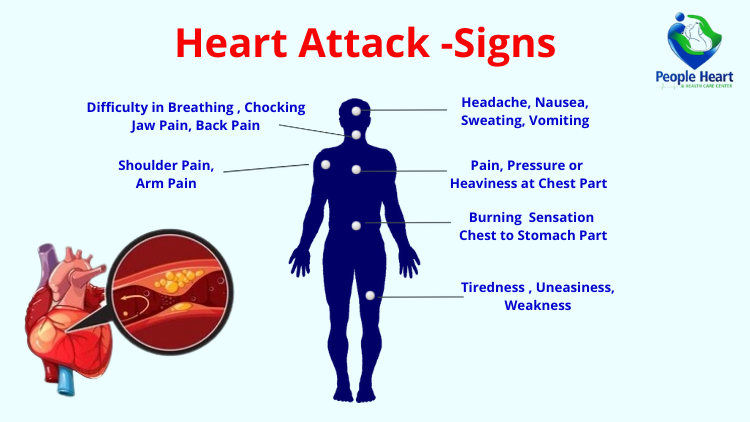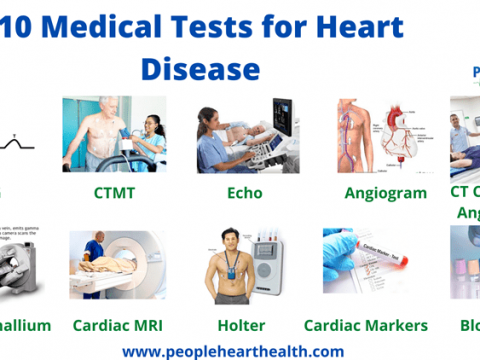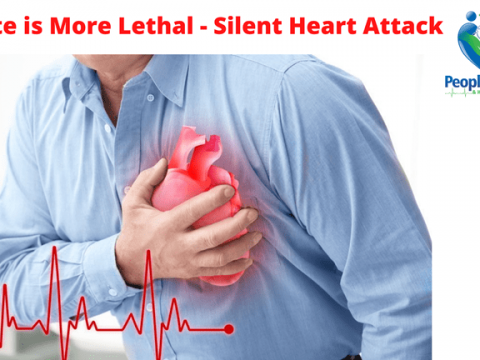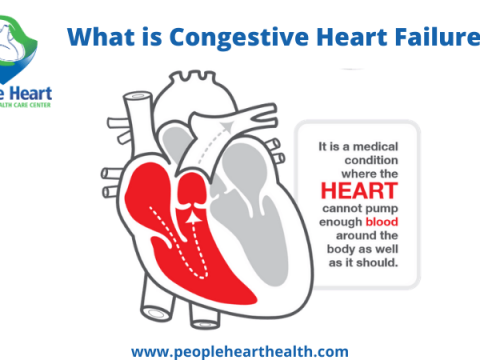
Know About 10 Medical Tests to Diagnose Heart Disease
March 24, 2021A heart attack occurs when the fat deposition ruptures the membrane of heart artery wall that covers the blockage. A person feels some warning signs before a heart attack is about to occur or during and after the heart attack occurred. Early warning signs of heart attack are to be taken very carefully for the best line of treatment to minimize the loses.
A Heart attack usually occurred due to blockage or fat deposition. Sometimes some person got spasmatic attack also, in which blockage is not there, still heart attack occurred.
Main cause behind heart blockage is unhealthy lifestyle which mainly includes bad food habits and lack of exercise. In some persons, genetics also play roles in blockage formation.
Warnings signs of heart blockage usually started when blockage becomes more than 70%. we have to keep a close watch for warnings signs of heart disease –
- Pain or discomfort in the chest part – It is the most common sign of heart attack, one feels pain, tightness, heaviness, pressure or discomfort at the chest part, it is also called as angina pain. Angina pain is usually a radiating pain, it means we cannot exactly pin point the location of pain or discomfort.
- Nausea or Vomiting – Person feels nausea or vomiting when heart attack occurs.
- Discomfort in breathing or severe breathlessness – It is also a main symptoms or heart attack.
- Burning Sensation – Some persons feels burning in chest or at stomach part during a heart attack.
- Jaw pain, back pain, shoulder pain
- Sweating and mild headache
- Uneasiness and tiredness
Most of the persons feel one or more symptoms listed above during a heart attack but it is not exclusive list. In rare cases signs may vary from the above listed symptoms.
The intensity and variability of signs of heart attack depending upon some factors like –
- The location of heart attack – Depending upon the location of heart attack the intensity of signs may vary. For example if heart attack occurred on upper part of arteries, the intensity of heart attack is maximum (Massive heart attack), and if heart attack occurs in mid part of coronary artery, the intensity is bit less (Major heart attack) and when heart attack occurred in distal part of coronary artery, the intensity of symptoms is minimum (Minor heart attack).
- Age of Patient – In young age, patients usually has good tolerance power so many times it happens that young patients feel less intensive signs of heart attack than older persons.
- Gender of Patient–Many times it has seen that man and women feels differ symptoms of heart attack.
- Ethnicity – Ethnicity also plays a significant role, as it create structural difference in shape, size, tolerance and color of organs.
Few Things to Prevent a Heart Attack –
It is not 100% possible to avoid a heart attack but these things prevents heart attack in most of the times.
- After the age of 20-22 years, gradually minimize the consumption of fat rich foods.
- Have an active lifestyle and balanced diet.
- Do regular walk, exercises, yoga and meditation.
- Try to do the work you truly like for your livelihood to minimize the level of stress.
- After the age of 30-35 Years do regular health check-up to keep control of all the risk factors of heart disease.
Special Advice for Persons who have Family History of Coronary Artery Disease-
- Those having strong family history of coronary artery disease are on higher risk of having a heart attack than others, because it is in their body structure to produces higher amount of lipids, so they need to be proactive as they need to control both external factors as well as internal factors of heart disease.
- Besides following all the above listed preventive things, they need to do regular checkups by the age of 20-25 years.
- If any factor is on higher side in reports, consult your doctor to control that.
To Summarize – Coronary artery disease was earlier considered as old age problem (after 50 years of age) but these days scenario is changed significantly, many youngster are coming up heart disease and heart attacks. Heart problem usually gives signals (Signs and symptoms) in early stages. So keep an eye on an early stage leads to the best line of treatment. Whether it is lifestyle management or any other line of treatment.





